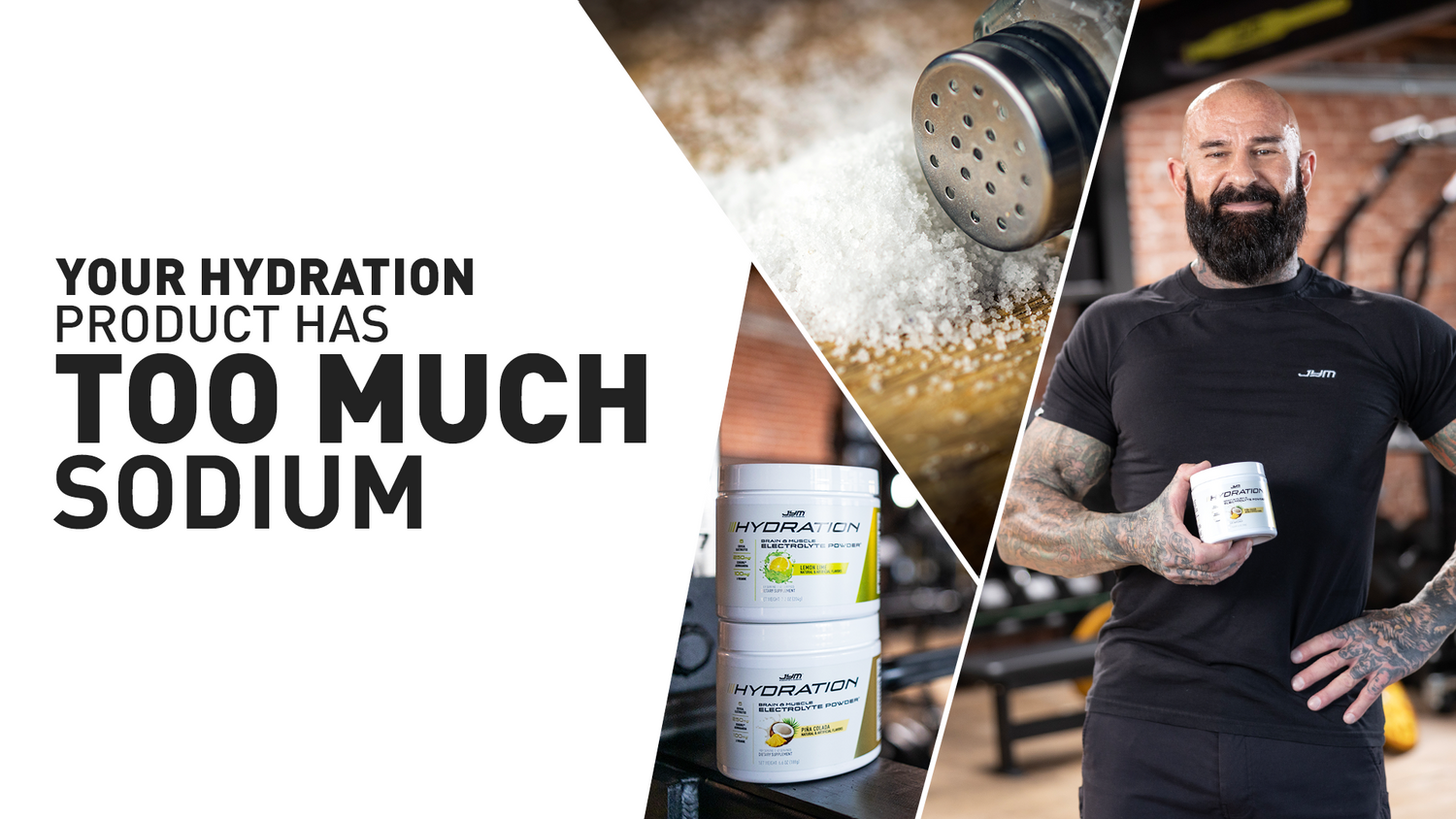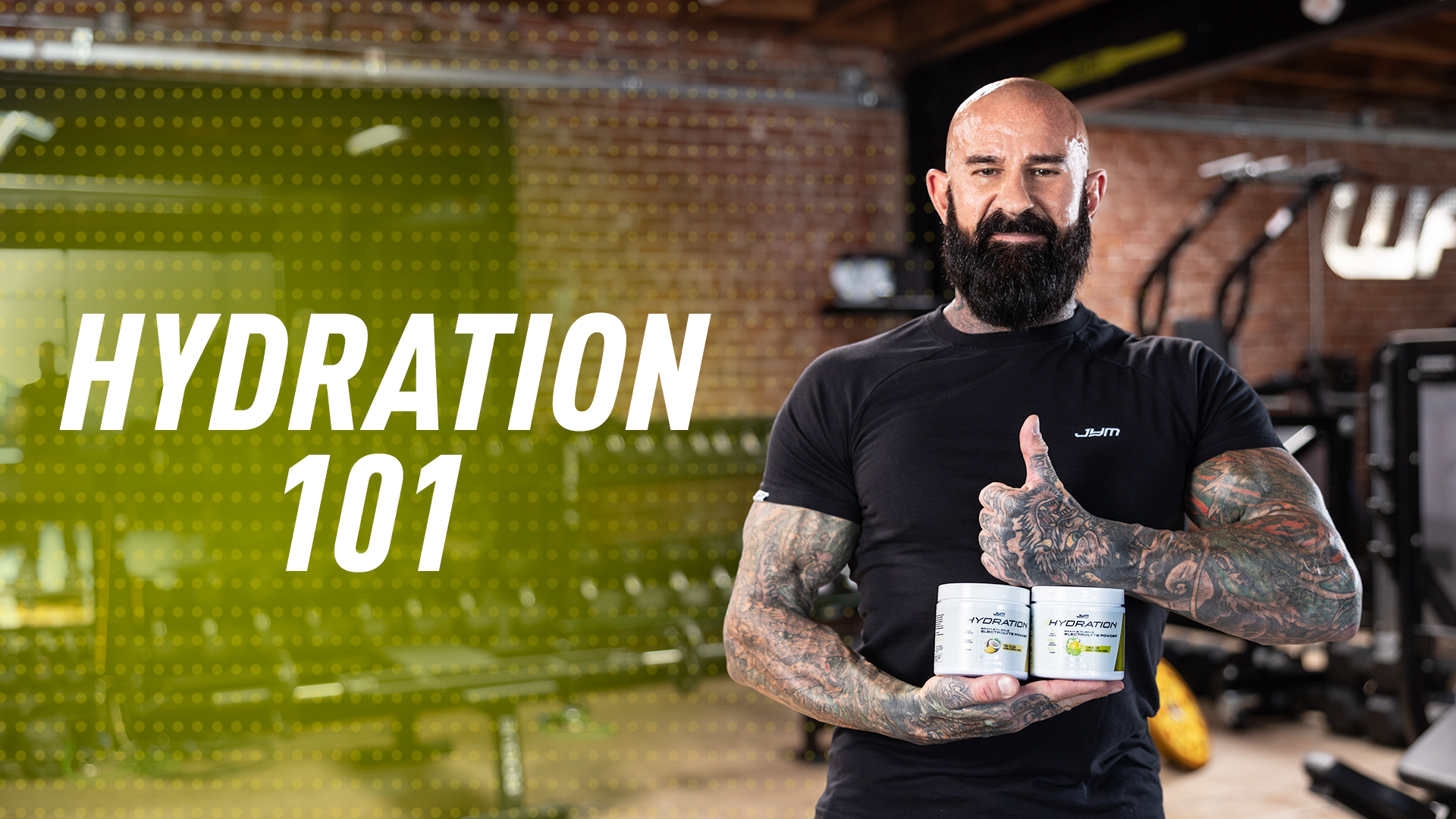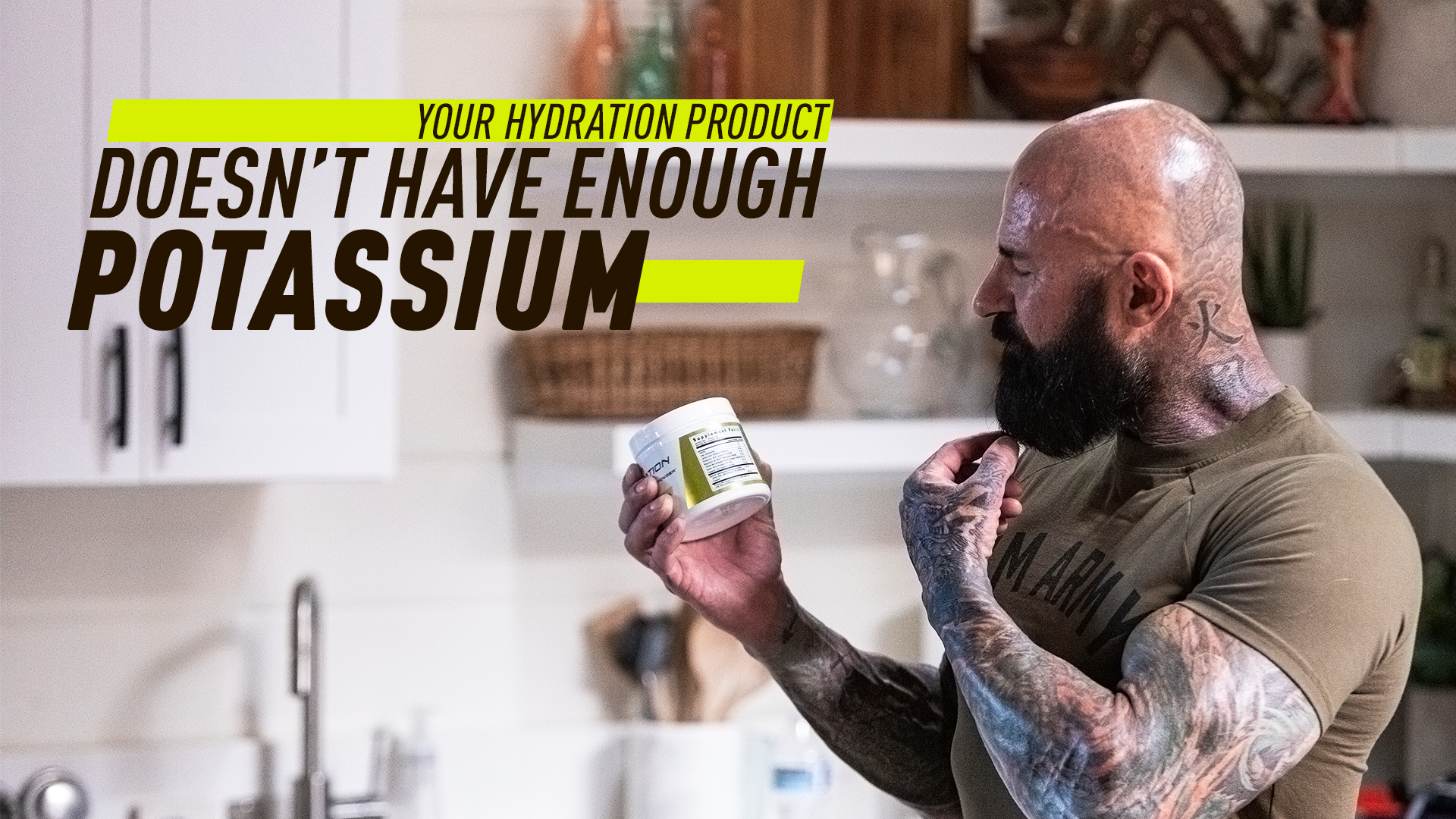Yes, you can have too much of a good thing. More is not necessarily better for this electrolyte.
Sodium may very well be the most important electrolyte for hydration due to how much of it is lost through sweat during exercise. But... way too many hydration drinks on the market go overboard on sodium and put too much of it in their products.
Can you have too much of a good thing? Absolutely! When supplied in excess, sodium pulls fluid out of your cells, which doesn't allow you to stay properly hydrated.
JYM Hydration - Providing the Optimal Sodium Amount
JYM Hydration fixes this issue by providing an optimal amount of sodium (300mg per scoop). In this video, Dr. Jim Stoppani explains why he formulated JYM Hydration the way he did, specifically as it pertains to sodium.
Understanding the Importance of Sodium
First, let's emphasize the role of sodium in hydration and overall body function. Sodium is one of the primary electrolytes in your body, alongside potassium, calcium, and magnesium. These electrolytes play a vital role in maintaining the balance of fluids both inside and outside your cells. For athletes and those who train hard, maintaining proper fluid balance is essential for peak performance and recovery.
Sodium also plays a crucial role in muscle function. It's involved in muscle contractions, nerve signaling, and the maintenance of the body's electrical impulses. Inadequate sodium levels can lead to muscle cramps, fatigue, and impaired athletic performance.
Why Too Much Sodium is a Problem
Let’s discuss the issue at hand: too much sodium in your hydration drink. Here are the issues that can arise when you consume too much sodium:
- Dehydration: Surprisingly, excessive sodium intake can lead to dehydration. High sodium levels in your body can disrupt the balance of fluids and cause your cells to lose water. In turn, this can make you more susceptible to dehydration, which is the opposite of what you want from a hydration drink.
- High Blood Pressure: One of the most well-known consequences of excessive sodium intake is high blood pressure. High blood pressure is a risk factor for various cardiovascular diseases, which is a concern for anyone, especially athletes who care about their long-term health.
- Gastrointestinal Issues: Too much sodium in your hydration drink can lead to stomach discomfort and even diarrhea. This is the last thing you want when you're in the middle of a workout or trying to rehydrate after one.
Finding the Right Balance
The key to an effective hydration drink is finding the right balance of electrolytes, including sodium. You want enough sodium to prevent muscle cramps, maintain proper fluid balance, and support muscle function, but not so much that it leads to the problems mentioned above.
The ideal sodium content in a hydration drink can vary from person to person, depending on factors such as sweat rate, environmental conditions, and individual preferences. It's a good practice to look for hydration drinks that are specifically formulated for athletes and provide balanced electrolyte levels — like JYM Hydration, which contains an optimal 300 mg of sodium per serving.
Bottom Line on Sodium
Sodium is a crucial electrolyte for athletes and gym enthusiasts, but it's equally vital to ensure that your hydration drink contains the right balance of sodium. Too much sodium can lead to dehydration, high blood pressure, and gastrointestinal issues, which can hinder your performance and overall well-being.
To stay at the top of your game, I highly recommend JYM Hydration. I formulated it with the goal of providing a drink for hard-training individuals to allow them to hydrate effectively without overloading the body with sodium. Keep that balance, and you'll be well on your way to achieving peak performance in your workouts and beyond.
True Performance Hydration

JYM Hydration - Lemon Lime
Buy Now



